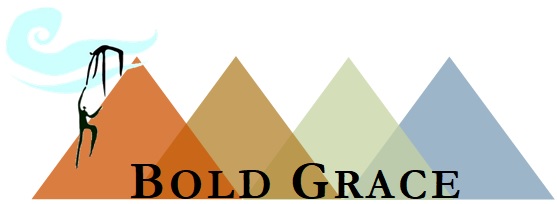Life [or leadership] is measured in love and positive contributions and moments of grace. ~Carly Fiorina (former CEO of Hewlett-Packard) *[insert] by Dr. Kathryn Scanland

I began an intense study of leadership in 2000 (the year I started my doctorate) and I haven’t stopped. Now that it’s been 20 years, I asked myself how I would describe effective leadership in just a couple of words. I struggled with winnowing it down for some time. Then at the end of 2019, I read an op-ed and the two words that immediately came to mind to describe what I had just read were: bold grace. At that moment, I realized those were the two words for which I had been searching. Twenty years of study summed up into bold grace.
What is bold grace?
Bold grace is a fusion of ideas: servant leadership, positive leadership, emotional intelligence, transformational leadership, change management, adaptive leadership, humble inquiry, cognitive behavioral therapy, etc. As you can see, it will take a year to unpack, and then repack, all of these ideas into bold grace.
I will begin with you where I began the new year. Ann Voskamp wrote a book entitled One Thousand Gifts. This book has sold extremely well and recently I kept seeing it or hearing someone reference either the book or Ann. It seemed it was time for me to finally explore what the 1,000 gifts were all about.
Grace Moments
Ann was challenged by a friend to write a list of 1,000 things she was grateful for, or “grace moments.” The result of this exercise changed Ann’s outlook, on everything. I’ve started my own list of 1,000 grace moments, and it may take all of 2020 to reach 1,000 but I can already sense my altered perspective by deliberately influencing what gets my attention.
This practice of cataloging grace moments could have a marked influence on how leaders lead. Here’s what I mean. I think people in leadership positions many times believe they are helping others to grow and develop. What I see, looking in from the outside, is a leader trying to make others become a replica of themselves, as opposed to helping others grow to be their own best self. They are looking at others through a corrective lens instead of a strengths or gifts lens.
I would encourage leaders to take the 1,000 grace moments challenge and begin writing, as specifically as possible, the strengths and gifts they see in their employees and colleagues. If we begin to tenaciously focus our attention on the gifts and strengths of others, I have no doubt it will also change how we see them.
This is not about overlooking mistakes or avoiding constructive criticism. To the contrary. It’s about changing how we see others and consequently how we interact with others. It’s to refocus our attention on helping others grow into their best self, which might be very different from our own best self. Especially for people in leadership roles, I believe this is a very real challenge. At least that’s what I’ve seen, repeatedly. So it’s not easy. I think it takes a lot of—you guessed it—bold grace.